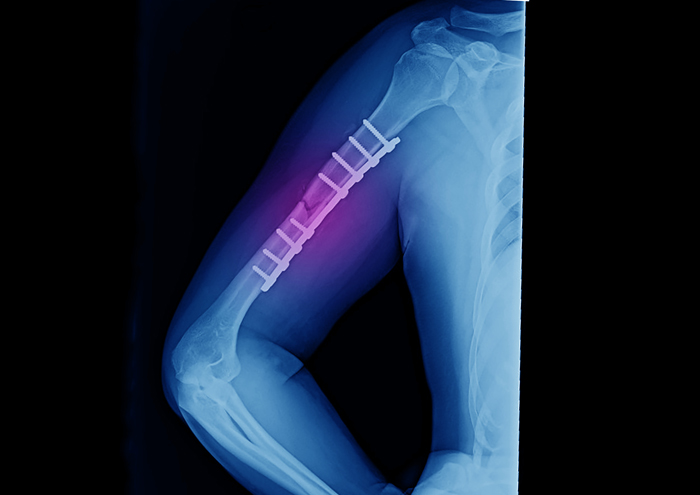Open Reduction Internal Fixation (ORIF) Treatment & Diagnostics in Chirag Enclave, Delhi
Open Reduction Internal Fixation (ORIF)
Overview of ORIF
Open reduction and internal fixation (ORIF) is a surgery performed by an orthopedic surgeon to heal a fractured or broken bone. It is generally performed to treat severely fractured bones that cannot be healed through medications, a cast or a splint.
What is ORIF surgery?
"Open reduction" means that a surgeon makes an incision in the affected area to realign the bone. In "internal fixation", the bones are held using hardware parts like plates, rods or screws. These hardware parts are not removed even after a bone is healed.
ORIF is an emergency surgery and is done only if a patient has severely fractured bones. You can visit an ortho hospital in Delhi for more information.

Who qualifies for ORIF?
Generally, people with severe fractures may show the following symptoms:
- Severe pain in the bones affected
- Inflammation and swelling
- Stiffness
- Inability to walk or use the arm
If you have undergone any trauma or injury and have any of the above symptoms, visit the best orthopedic surgeon in Delhi.
Other illnesses that may lead to this surgery are:
- Rheumatoid arthritis: It is an auto-immune disease that affects the joints and bones in different parts of the body.
- Osteoarthritis: This condition usually occurs in people over the age of 60. It causes the 'wear and tear' of bones and leads to decreased strength and pain in them.
Why is Open Reduction Internal Fixation conducted?
The procedure is conducted to heal the bone if it is fractured or has the following complications:
- Puncturing of skin: If the broken bones have punctured your skin, then traditional treatments might not work. The bones will then require restoration through ORIF surgery.
- Breaking of bones: If the bones have broken into several smaller pieces, internal fixation will be required.
- Misalignment of bones: Severe injuries may cause the bones in the legs or arms to be significantly out of place. In such cases, ORIF surgery may be conducted to restore full mobility.
- Fracture: Severe bone injuries and fractures may lead to a loss of mobility in the affected area. Undergoing ORIF surgery may be necessary in such cases.
When do you need to see a doctor?
If you suffer from any of the conditions mentioned above, your doctor may ask you to undergo ORIF surgery.
Request an appointment at Apollo Spectra Hospitals, Chirag Enclave, Delhi
Call 1860 500 2244 to book an appointment
What are the benefits of open reduction internal fixation surgery?
- Restores complete mobility in the fractured bones
- Relieves pain due to misalignment or incomplete healing in the bones
- Allows you to resume your daily activities without any complications
What are the risks of ORIF surgery?
ORIF surgery has a high success rate, but it does pose some risks. They are:
- Bacterial Infection in the bone due to insertion of the hardware
- Damage to the nearby nerves or joints during surgery
- Bleeding or clots
- Misalignment or abnormal healing of the bones
- Chronic pain
- Development of arthritis in the bones
- Muscle spasms or damage
Consult the best orthopedic surgeon in Delhi to ensure hassle-free ORIF surgery.
Conclusion
Open reduction and internal fixation surgery is one of the most commonly performed surgical procedures. It is the best surgical method to treat severe fractures in bones. It rarely leads to any complications. Consult an orthopedic surgeon in Delhi if you have any doubts before the surgery and go for checkups regularly after the surgery to ensure proper recovery.
The recovery time for ORIF surgery may vary from person to person. It generally takes 3 to 12 months for complete recovery and may require the need for physical or occupational therapy to restore movement in the area.
The following precautions should be taken after ORIF surgery:
- Take medications on time
- Ensure that your incision area remains clean
- Continue physical therapy
- Don't apply pressure in the area
It may take anywhere from 3 months to 6 months for your bone to completely heal and come out of plaster. Until then do not walk or apply pressure in that area while doing an activity. Visit the best orthopedic hospital in Delhi for more information.
Symptoms
Our Top Specialities
NOTICE BOARD
CONTACT US
CONTACT US
 Book Appointment
Book Appointment


.svg)
.svg)
.svg)
.svg)








